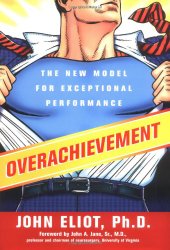I hate wasting my time.
Misdirecting my effort is one of my biggest pet peeves and phobias. (There is nothing worse than realizing you wasted hours tilting at windmills.)
The fear of wasting time makes it really easy to fall into inaction. I often accomplish nothing because I have used all of my time researching, planning, and hand-wringing.
The result is that I end up doing exactly what I fear: wasting time.

Brenda Ueland touched on this paradox in her classic book If You Want to Write:
“When you will, make a resolution, set your jaw, you are expressing an imaginative fear that you won’t do the thing. If you knew you would do the thing, you would smile happily and set about it. And this fear (since the imagination is always creative) comes about presently and you slide down into the complete slump of several weeks or years – the very thing you dreaded and set your jaw against.”
Breaking the Inertia Cycle
I often return to the Brenda Ueland quote after falling into one of those annoying slumps of inaction. The problem is that it’s hard to identify whether you’re in a slump until it is almost over.
This wheel-spinning is what performance psychologist John Eliot would call being an “overmotivated underachiever.”
“An Overmotivated Underachiever is “a person who, by every objective measure, is talented and able, yet does not perform anywhere near his potential, despite massive amounts of effort.”
 I first became aware of the concept of an overmotivated underachiever in college when I read Dr. Eliot’s book, “Overachievement: The New Science of Working Less to Accomplish More.”
I first became aware of the concept of an overmotivated underachiever in college when I read Dr. Eliot’s book, “Overachievement: The New Science of Working Less to Accomplish More.”
Like many productivity authors, Dr. Eliot spends a lot of time on colorful anecdotes and examples. However, Dr. Eliot’s clinical data is what makes Overachievement different than your typical pop-psychology/business book.
Here’s the gist:
- Extraordinary performance requires, by definition, that you do something that is not ordinary.
- Gifted, intiuitive performers think very differently from your typical overmotivated underachiever.
- What turns ordinary people into overachievers is the way they use their minds when called upon to perform.
I’ve stumbled upon these principles multiple times during my career.
I have noticed that when I am doing exceedingly well, it’s usually because I have adopted a different mindset than my coworkers.
This typically involves ignoring a perceived limitation that stifles the productivity of my peers.
Dr. Eliot’s book explores the science behind the “Trusting Mindset” and the “Training Mindset” — concepts which other authors have formulated in different ways.
For example, Steven Pressfield describes procrastination and decision-paralysis as a boogeyman named “Resistance.” Whereas Cal Newport focuses on the misguided career aspirations that lead people to become overmotivated underachievers.
Writing your Own Bible
All of these books touch on a similar set of principles, but it is easy forget these lessons and fall back into the same bad habits of distraction and inaction.
One of the ways to avoid falling back into bad habits is to constantly remind yourself of the principles and mental frameworks that you want to follow. Most religions do this really well through structured rituals and readings of religious texts.
This organized reminder system can be easily adapted to reinforce productivity and wellness habits:
- Write a clear mission statement for whatever goal you want to achieve.
- Gather your supporting texts (be it blog links, book summaries, or your own notes.)
- Develop a simple action plan for applying the principles from your supporting texts.
- Routinely review your mission statement and action plan. (Perhaps at the beginning of each week?)
This is structured approach is an easy way to stay on track, and avoid the slump of being an overmotivated underachiever.





No Comments